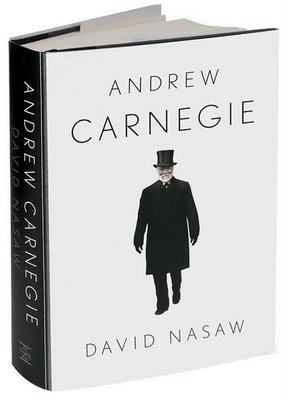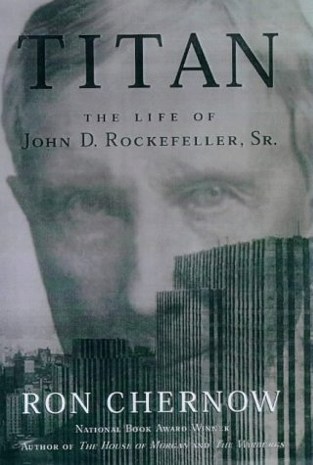
“Like most young people who get breaks, luck has a lot to do with it, and timing. And the second factor, besides timing, is that as a young man usually all of us would admit that there was a mentor, a benefactor. And when an older person who you respect and admire has confidence in you, it’s a great booster to your own self-confidence.”
– Steve Wynn, regarding Tom Scott’s mentoring of Andrew Carnegie, on the History Channel’s “The Men Who Built America”
Timing. Andrew Carnegie’s life was full of good timing and bad timing. Not unlike your life. Or mine.
As a 12-year old boy, “Andy” was working for Tom Scott’s Pennsylvania Railroad. He became Scott’s personal assistant and in short order, Scott took a special interest in Carnegie. He taught young Carnegie the railroad business, and along the way a thing or two about operating a business.
There’s much more to success in business than luck, timing and a benefactor. Some things that are good. Others…not so much.
Ruthless business behavior isn’t limited to the stories you hear about today’s technology giants or social media moguls. It was well practiced by the men who built America. Winners don’t take well to losing. Some will do whatever it takes – legal or not, ethical or not – to gain an advantage.
Smartness isn’t the private domain of those who’ve built companies like Apple, Microsoft, Intel, Oracle or Facebook. Being smart pays off in every arena of life and in every era. Yet, there are many success stories whose main character was less than brilliant. You don’t have to be a top drawer brain to be successful in business.
Luck, timing and a person willing to show us the way or help us out are three common denominators often seen in the stories of successful people. That isn’t meant to diminish brilliance, determination and courage. Or the power of ruthlessness.
 Post Civil War America was built mostly by ruthless men. Men whose business success was fueled by fearlessness, opportunity and an intense desire to best their peers. Putting the other guy out of business was often the primary objective in the early 1900’s. During America’s industrial age capitalism was dominated with men doing their best to gain a monopolistic advantage. From railroads, to steel, to oil and to electricity – early American business success came most to those able to dominate an infrastructure industry.
Post Civil War America was built mostly by ruthless men. Men whose business success was fueled by fearlessness, opportunity and an intense desire to best their peers. Putting the other guy out of business was often the primary objective in the early 1900’s. During America’s industrial age capitalism was dominated with men doing their best to gain a monopolistic advantage. From railroads, to steel, to oil and to electricity – early American business success came most to those able to dominate an infrastructure industry.
Could these industries have progressed without enemies driving the competitive spirit? Likely not. It’s the reason Edison invented the electric chair! Nor is it likely that any of these early pioneers of business could have achieved their success without luck, timing and a benefactor.
Take Edison and Tesla, one of Edison’s underlings. Both were brilliant (smart). Both were hard-working and devoted to their ideas. Tesla resigned from Edison’s company because of his firm belief that alternating current (AC) was more powerful and useful than direct current (DC). Edison was all in on DC and dismissed Tesla’s ideas so Tesla quit.
Edison had JP Morgan backing him. Tesla had Westinghouse.
JP Morgan ended up with the whole shebang called General Electric. Sometimes one benefactor wound up on top! It’s always better to have successful coat tails to latch onto. History might have been very different if Tesla’s benefactor had won. But he didn’t. Tesla’s horse lost and the rest is history.
Without boldness, courage, conviction in their rightness and confidence in their ability…it’s doubtful any of these early American businessmen would have found luck, timing or a benefactor. Good things don’t necessarily come to those who wait. More often than not, they come to those who step out from the crowd determined to find them, chase them down and own them. It’s high risk behavior.
But I wonder if it’s any riskier than those poor workers who suffered the abuses of working conditions that were life threatening. Living without options, no choices. Destined to accept whatever low wage was offered, working whatever schedule was imposed on them and suffering a life without hope for improvement.
The titans created their own choices. Failure was always an option, but so was success. It seems they were driven to have choice. And to connect with whomever could help them achieve their dream. They were committed to their own cause, their own idea and their own belief. I hope you are, too!
